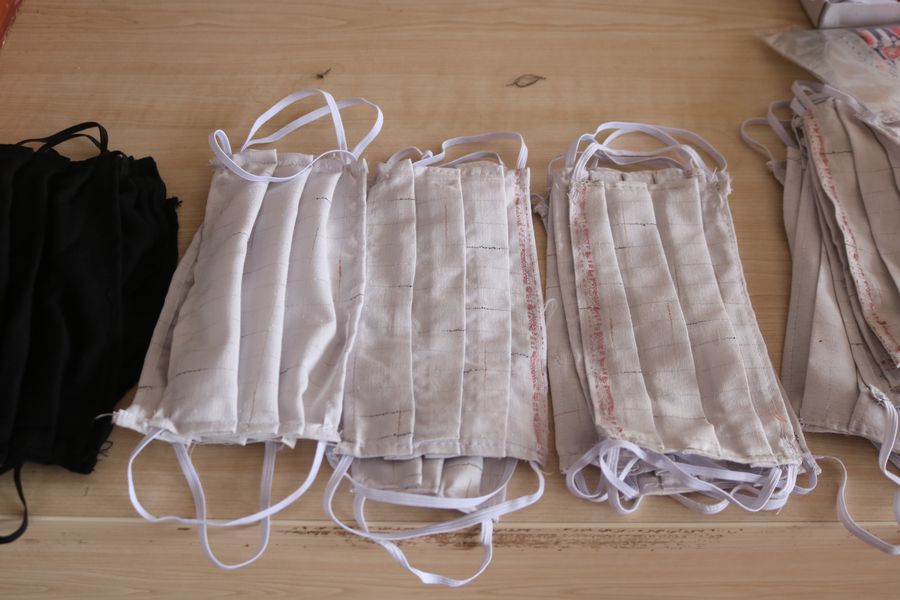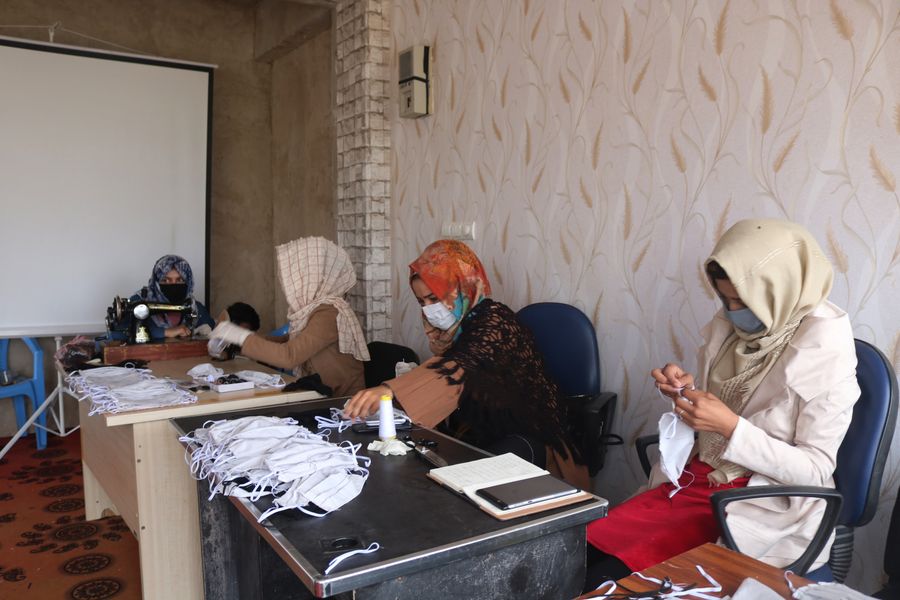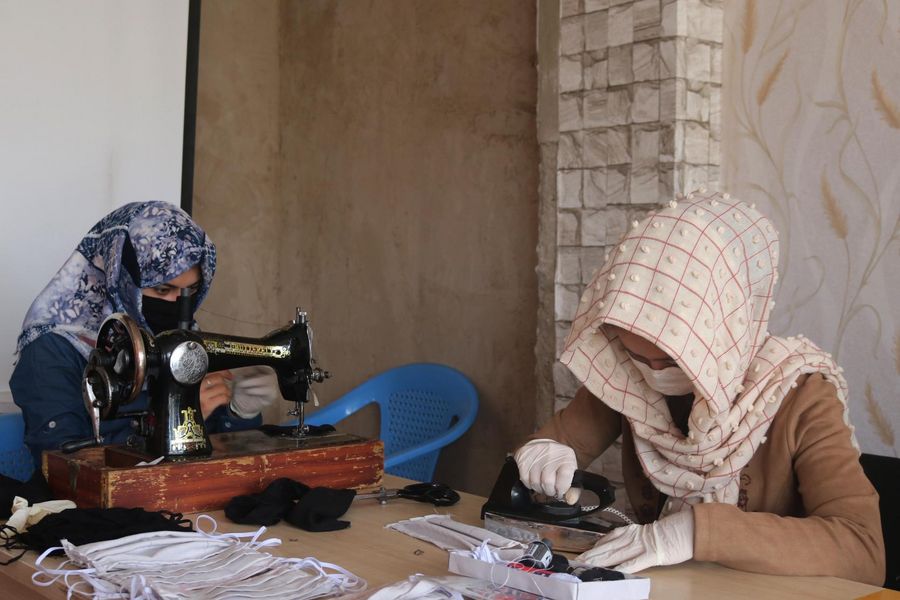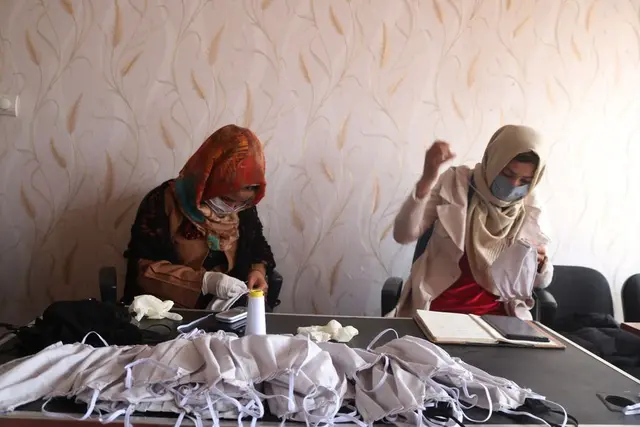"The people of Afghanistan are more vulnerable than any other nations and COVID-19 has further added to our vulnerability. It is the responsibility of all Afghans to stand alongside the government in this critical stage to overcome the war on the killing disease," said Afghan girl Parwina Azimi.
SARI PUL, Afghanistan, April 19 (Xinhua) -- "Afghanistan is a poor country and it is difficult for the government to fight COVID-19 alone, therefore, I have decided to contribute the war within my capacity and encourage others to support the establishment in war against the killing disease," whispered Parwina Azimi.
Establishing a small tailoring shop in her hometown Sari Pul city, the capital of northern Sari Pul province a week ago, Azimi boasted that nine girls volunteered to make face masks free of charge and distribute them among the people to prevent the virus spread in the city.
The militancy-plagued Afghanistan has been facing the spread of COVID-19 since mid February and so far 906 positive cases have been confirmed, spokesman for Public Health Ministry, Wahidullah Mayar said Friday.

Photo taken on April 13, 2020 shows facemasks at a tailoring shop in Sari Pul province, Afghanistan. (Photo by Mohammad Jan Aria/Xinhua)
According to Mayar, 30 patients infected with COVID-19 have died and 99 others have recovered since the outbreak of the virus in mid February in Afghanistan.
To contain the spread of the disease, Afghan government has shut down all the educational centers including private and public schools and universities. It also decided to set free 10,000 inmates from prisons to prevent the virus increase.
The government also imposed daytime curfew in big cities including the capital city of Kabul since late March and has been monitoring the health status of its citizens closely.

Afghan women make facemasks at a tailoring shop in Sari Pul province, Afghanistan, April 13, 2020. (Photo by Mohammad Jan Aria/Xinhua)
Expressing deep concern over the spread of the killing virus in Afghanistan, the country's Public Health Minister Ferozuddin Feroz has warned that the country may face catastrophe if the advices given by the ministry overlooked by the people.
According to Feroz, COVID-19 could claim the lives of 110,000 people in Afghanistan if the spread of the killing virus goes unchecked.
"The people of Afghanistan are more vulnerable than any other nations and COVID-19 has further added to our vulnerability. It is the responsibility of all Afghans to stand alongside the government in this critical stage to overcome the war on the killing disease," the valiant girl asserted.
The number of volunteers to boost the war on the novel coronavirus has been on rise in the northern Sari Pul province, Azimi said happily, adding some 150 men and women have announced to join the war against the virus by promoting awareness among the people, and providing face masks, soap, sanitizers, gloves and more essential items.

Afghan women make facemasks at a tailoring shop in Sari Pul province, Afghanistan, April 13, 2020. (Photo by Mohammad Jan Aria/Xinhua)
"In our small factory, we make about 300 face masks daily and distribute among people to stay safe. I am feeling pride to serve my countrymen in this critical stage against the killing disease and I am calling upon all Afghans to join hand and fight the disease till its elimination," a lady tailor Munira Hamdard told Xinhua in her tailoring shop.
A handful of men have also contributed in fighting COVID-19 in Afghanistan by providing face masks, medical supplies or foodstuff to needy families, but it is the first time that a 10-member group of girls and women gathered under a girl to fight the disease in the patriarchal and economically impoverished society.
"I have received health kits including face masks and soaps from the volunteers team and I am thankful to the team for its assistance, as the kits cost at least 200 afghanis (2.6 U.S. dollars) and it is difficult for a villager to pay the price," a villager Mohammad Azim assumed.■
 简体中文
简体中文

